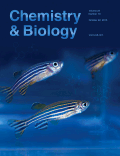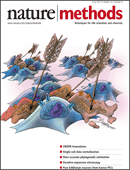 The week at Retraction Watch featured an update on a Harvard lab whose PI is subject to a restraining order by one of his grad students, and the retraction of a paper that used male-only pronouns. Here’s what was happening elsewhere: Continue reading Weekend reads: Subscription journals doomed?; Are scientists most often wrong?; “Buxom grapefruits”
The week at Retraction Watch featured an update on a Harvard lab whose PI is subject to a restraining order by one of his grad students, and the retraction of a paper that used male-only pronouns. Here’s what was happening elsewhere: Continue reading Weekend reads: Subscription journals doomed?; Are scientists most often wrong?; “Buxom grapefruits”
Toronto wife-husband research team lose bid to re-open labs


A pair of Canadian scientists may be running out of options to save their laboratories, which have been permanently closed based on findings of research misconduct.
Sylvia Asa, once the head of the largest hospital diagnostic laboratory in Canada, and her husband and collaborator Shereen Ezzat, have spent almost five years fighting allegations of research misconduct involving data falsification and fabrication in more than a dozen published papers. The couple’s work has been scrutinized by their employer, University Health Network (UHN), a healthcare system affiliated with the University of Toronto, in two investigations. The investigations did not find evidence that Asa or Ezzat were directly involved in image falsification or fabrication; however, they concluded that, as supervisors, they failed to conform to accepted standards and practices as they related to scientific rigor and accountability.
After the first investigation, UHN decided to temporarily close both Asa and Ezzat’s labs. After the second, the UHN decided to make that closure permanent. The couple have had three papers retracted and at least one correction.
Recently, the pair faced yet another setback. After they asked an Ontario court to review two of UHN’s decisions, on July 13, a judge found no fault with either one. Justice Ian Nordheimer, one of three judges who considered Asa and Ezzat’s request, said in his written opinion: Continue reading Toronto wife-husband research team lose bid to re-open labs
Journal retracts paper it says authors published twice. Authors disagree.
 A journal has retracted a 2012 paper after determining that the authors had already published it elsewhere.
A journal has retracted a 2012 paper after determining that the authors had already published it elsewhere.
According to the retraction notice, the editors-in-chief of the Journal of Occupational Medicine and Toxicology concluded that the article had been published in another journal—In Vitro Cellular & Developmental Biology – Animal—the previous month. The authors, however, did not agree to the retraction.
The research, led by Ali Khavanin, who is based at Tarbiat Modares University in Tehran, Iran and is corresponding author on both papers, evaluated whether the vibrations from industrial machinery can harm hearing in rabbits (1, 2).
Here’s the retraction notice for “Assessment of the influence of whole body vibration on Cochlear function”: Continue reading Journal retracts paper it says authors published twice. Authors disagree.
The Harvard lab head, the grad student, and the restraining order: An ongoing saga

Regular Retraction Watch readers may recall a remarkable story from January involving Harvard’s Lee Rubin and one of his graduate students. As we reported in Science at the time, the graduate student, Gustavo German, said he had been subjected to a forced psychiatric evaluation as “an act of revenge by Rubin, retaliation prompted by German’s allegation of scientific misconduct against Rubin and two of his students.” And a judge “agreed with German, concluding [last August] that Rubin was ‘motivated by bias and revenge, not by a legitimate interest in keeping German safe.'”
That led to a restraining order that required Rubin to remain 100 feet from German at all times — including in the lab where German was working on his PhD.
Today, we have an update on the story, also in Science: “At Harvard, extraordinary court battle between Ph.D. student and prominent researcher grinds on.” As our Alison McCook writes: Continue reading The Harvard lab head, the grad student, and the restraining order: An ongoing saga
Why did it take a journal two years to retract a paper after a misconduct finding?
 A 2014 paper containing data manipulated by a former graduate student has finally been retracted, two years after the U.S. Office of Research Integrity (ORI) published its findings.
A 2014 paper containing data manipulated by a former graduate student has finally been retracted, two years after the U.S. Office of Research Integrity (ORI) published its findings.
In August 2015, the ORI published a report that Peter Littlefield, who was working on his PhD at the University of California, San Francisco (UCSF), had committed “research misconduct by falsifying and/or fabricating data” in two papers. Littlefield agreed to correct or retract the papers–one published in Chemistry & Biology and the other in Science Signaling.
When we contacted Chemistry & Biology back in August 2015, a spokesperson for Cell Press told us the journal was figuring out “the best way to correct the scientific record.”
Apparently that took two years. In the meantime, the journal did not issue an expression of concern or otherwise notify readers of the issues. Continue reading Why did it take a journal two years to retract a paper after a misconduct finding?
Looking to avoid a bad lab? A new site wants to help
![]() We’ve all heard horror stories of lab disputes that can quickly spin out of control. (Such as a graduate student obtaining a restraining order against his supervisor, which we covered earlier this year for Science.) Naturally, prospective students want to do their homework before committing to a particular laboratory or supervisor. A new website, QCist, is trying to make that process easier, by letting students rate labs. It’s still new – only several dozen lab heads have been rated so far, mostly from the U.S. – but founder and Executive Director Qian-Chen Yong has plans for it to grow much bigger. We spoke with Yong, currently a research fellow at the Cancer Research Institute, Baylor Scott & White Health in Texas — who completed a postdoc at Texas A&M Health Science Center and a PhD at the National University of Singapore — about the plan to keep the site from becoming a place to smear a tough boss’s reputation.
We’ve all heard horror stories of lab disputes that can quickly spin out of control. (Such as a graduate student obtaining a restraining order against his supervisor, which we covered earlier this year for Science.) Naturally, prospective students want to do their homework before committing to a particular laboratory or supervisor. A new website, QCist, is trying to make that process easier, by letting students rate labs. It’s still new – only several dozen lab heads have been rated so far, mostly from the U.S. – but founder and Executive Director Qian-Chen Yong has plans for it to grow much bigger. We spoke with Yong, currently a research fellow at the Cancer Research Institute, Baylor Scott & White Health in Texas — who completed a postdoc at Texas A&M Health Science Center and a PhD at the National University of Singapore — about the plan to keep the site from becoming a place to smear a tough boss’s reputation.
Retraction Watch: What inspired you to create this site?
Continue reading Looking to avoid a bad lab? A new site wants to help
Controversial CRISPR paper earns second editorial note
 Against the authors’ objections, Nature Methods has added an expression of concern to a 2017 paper that drew fire for suggesting a common gene editing technique could cause widespread collateral damage to the genome. The latest note — the second to be added in two months — alerts readers to an alternative interpretation of the findings.
Against the authors’ objections, Nature Methods has added an expression of concern to a 2017 paper that drew fire for suggesting a common gene editing technique could cause widespread collateral damage to the genome. The latest note — the second to be added in two months — alerts readers to an alternative interpretation of the findings.
When “Unexpected mutations after CRISPR–Cas9 editing in vivo” was published May 30, it immediately drew criticism from many of the top scientists working with CRISPR, including those associated with companies seeking to develop CRISPR-based therapies for humans. Share prices for the two largest companies pursuing CRISPR therapies, Editas Medicine and Intellia Therapeutics, dropped following publication of the article.
On June 14, the journal published a notice to alert readers to “technical criticisms” of the paper. Apparently, that wasn’t sufficient, because the journal is now providing more details on the nature of the criticisms, despite the objections of the paper’s authors:
Continue reading Controversial CRISPR paper earns second editorial note
PLOS ONE retracts paper after researcher admits to fabricating data
 On June 19, 2017, the U.S. Office of Research Integrity published its first misconduct finding of the year. The ORI reported that Brandi M. Baughman — a former research training awardee at the National Institute of Environmental and Health Sciences (NIEHS) — had “falsified and/or fabricated data” in 11 figures in a 2016 paper published in PLOS ONE.
On June 19, 2017, the U.S. Office of Research Integrity published its first misconduct finding of the year. The ORI reported that Brandi M. Baughman — a former research training awardee at the National Institute of Environmental and Health Sciences (NIEHS) — had “falsified and/or fabricated data” in 11 figures in a 2016 paper published in PLOS ONE.
Two days later, on June 21, PLOS ONE retracted the paper. (Note: The retraction process proceeded relatively quickly, but took longer than two days; a spokesperson for the journal told us that the authors alerted the editors of their concerns about the publication in May.) Continue reading PLOS ONE retracts paper after researcher admits to fabricating data
May the sting be with you: Another journal prank, too good to overlook
 Yes, yes, we know: It’s easy to publish “fake” papers in journals and expose the inherent flaws of academic publishing. We’ve covered many such stings, but there are simply too many for us to cover all. Still, occasionally one is just too clever to ignore.
Yes, yes, we know: It’s easy to publish “fake” papers in journals and expose the inherent flaws of academic publishing. We’ve covered many such stings, but there are simply too many for us to cover all. Still, occasionally one is just too clever to ignore.
On Saturday, the pseudonymous blogger Neuroskeptic announced that they had written a Star-Wars themed paper that had been accepted by three journals. On Monday, Neuroskeptic announced that two of the journals appear to have removed the papers.
So what’s the point of this latest academic prank? As Neuroskeptic writes on the Discover blog:
Continue reading May the sting be with you: Another journal prank, too good to overlook
Uni dings schizophrenia studies for problems with informed consent, other flaws
 Psychiatry journals have retracted two papers evaluating a schizophrenia drug after a university in Japan flagged issues, such as a lack of written informed consent.
Psychiatry journals have retracted two papers evaluating a schizophrenia drug after a university in Japan flagged issues, such as a lack of written informed consent.
The papers—published in Human Psychopharmacology: Clinical & Experimental in 2012 and Psychiatry and Clinical Neurosciences in 2014—examined the safety and effectiveness of an antipsychotic drug in patients with schizophrenia.
According to the retraction notice in Psychiatry and Clinical Neurosciences, the ethics committee at St. Marianna University School of Medicine in Kawasaki found that “the trial included subjects who did not satisfy inclusion criteria.” For instance, not all patients provided written informed consent. But the university found no evidence for data falsification or fabrication.
A spokesperson for Human Psychopharmacology told us: Continue reading Uni dings schizophrenia studies for problems with informed consent, other flaws